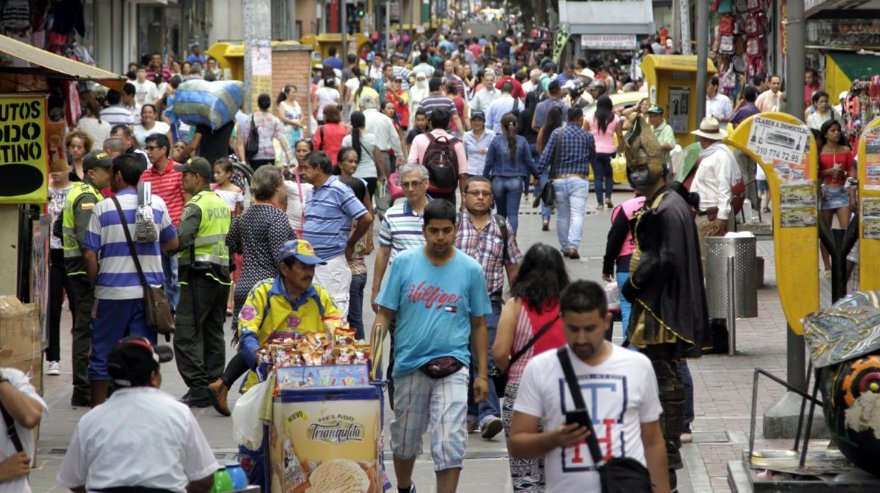
The integral development of a nation is a complex and multivariable concept that includes a series of factors of an economic nature (such as economic growth and the distribution of wealth), social (such as the levels of the human development index, the degrees of poverty and levels of interpersonal trust) and political (such as the degree of political stability, the relative strength or weakness of the institutional framework and the degree of democratization of the country).
The necessary and urgent construction of a democratic system in Venezuela (one of the central political elements in this integral development process) does not depend only on factors such as the actions of government and opposition actors. In fact, the universal political science literature has extensively emphasized the importance of factors of a cultural and psychosocial nature and have managed to demonstrate the explanatory importance of the so-called “subjective conditionsof the population of a country.
These “subjective conditions” range from the particular values, attitudes, beliefs and behaviors of the inhabitant of a country, to the degree of development of its Social Capital and the relative levels of psychosocial vulnerability of its population.
For authors like Inglehart, Fukuyama, Putnam and others, Social Capital is a key factor for building and maintaining a stable democracy. For these and other authors, adequate levels of Social Capital, together with the existence of an efficient political bureaucracy and the participation of the masses in public affairs, are three crucial factors for the development of a modern democracy.
Let us remember that Social Capital refers to the characteristics present at a given moment in the structures and dynamics of interpersonal and intersectoral relationships in a society. A high degree of Social Capital facilitates cooperation, the coordination of joint actions for mutual benefit and to develop agreements in a balanced, continuous and sustained manner over time in a population. That is why low levels of Social Capital become not only an obstacle for the necessary citizen organization, but also a serious limitation for the construction of a stable democratic system and for the development of a country.
One of the main and most serious factors that threaten the development of adequate levels of Social Capital in a population, is what is known as “Psychosocial Vulnerability”. It has been defined, in a very generic way, as the set of factors of an individual nature and of the person’s relationship system that modulate their behavioral reactions to the environment, especially to hostile or difficult environments. High degrees of Psychosocial Vulnerability in a population are thus correlated with low levels of Social Capital.
Both the social capital and the political culture of a population are not static, but are affected by the political and economic conditions that condition the life of that same population. In this sense, referring specifically to the Venezuelan case, if the country has experienced drastic and evident political and economic changes in the last five years, it is naive to think that there have been no changes in their behavior and in the levels of psychosocial vulnerability of its population, especially in the context of a long plural crisis, characterized by a prolonged economic recession and high political and institutional conflict.
Known studies, such as the specific case of the National Survey of Living Conditions (Encovi-UCAB) have been studying in recent years some of the main problems of the Venezuelan population in order to offer relevant information on the living conditions of their inhabitants, and guide the appropriate strategies in terms of specific public policies to deal with them. But for this diagnosis (and its coping and solution proposals) to be truly complete and comprehensive, it is necessary to incorporate the specific variable referring to the psychosocial vulnerability, given its very high influence for the formation of Social Capital and the construction of a democratic society.
Hence the importance of discussing and further deepening the findings of the recent study on current psychosocial characteristics of the Venezuelan population developed by UCAB (PsicoData 2023). As we mentioned in another article, the study identified -within the high complexity that characterizes the psychosocial profile of Venezuelans and the presence of apparently contradictory positive and negative elements within it- a set of factors that make up a condition of important psychosocial vulnerability. Among them, a high negative affect towards the country stands out (which includes feelings of anger, worry and sadness), hypertrophy of the economy as a source of daily stress, high psychological discomfort, high levels of mourning for the loss of family members and close friends, difficulties in identifying and expressing emotions, and a very low interpersonal trust, which is a serious obstacle for citizen organization, since it is difficult to articulate socially with others when one does not trust them.
Once again, it is necessary and urgent -given the particular characteristics and chronicity of the Venezuelan crisis- to continue considering and studying in depth the specific variable of the psychosocial vulnerability of the population today. Any x-ray or analysis of the Venezuelan situation, as well as any design of proposals for action and intervention in the face of the consequences of our already long crisis, will be incomplete if it does not incorporate this crucial variable.
@angeloropeza182